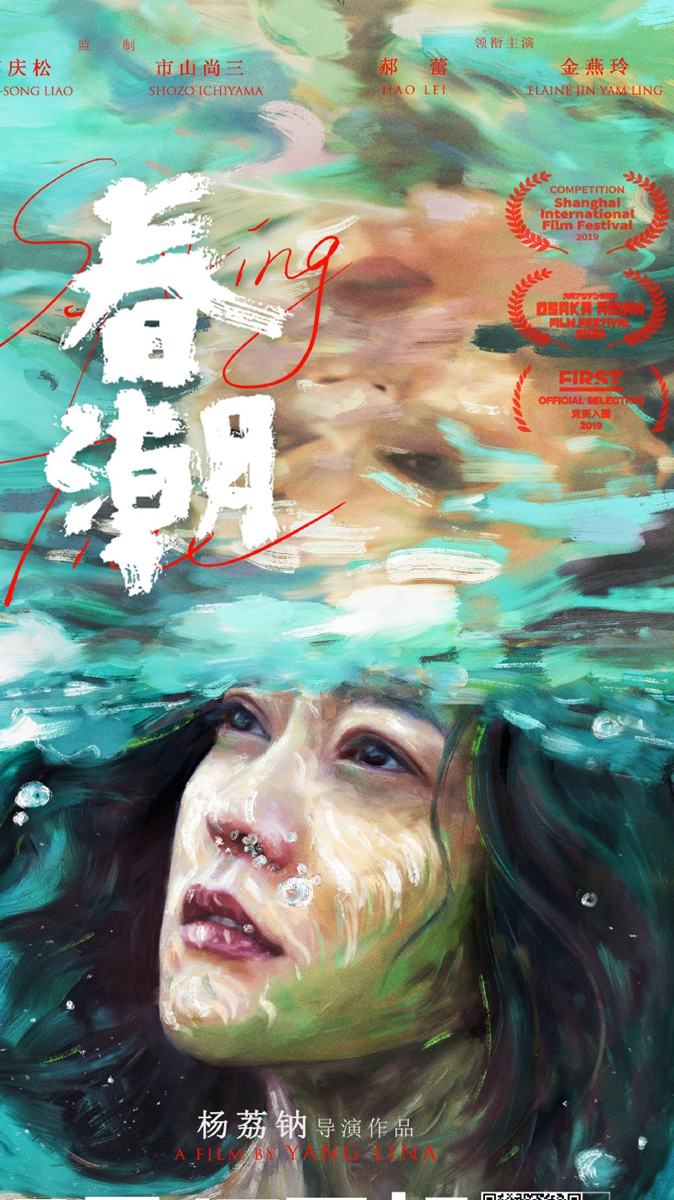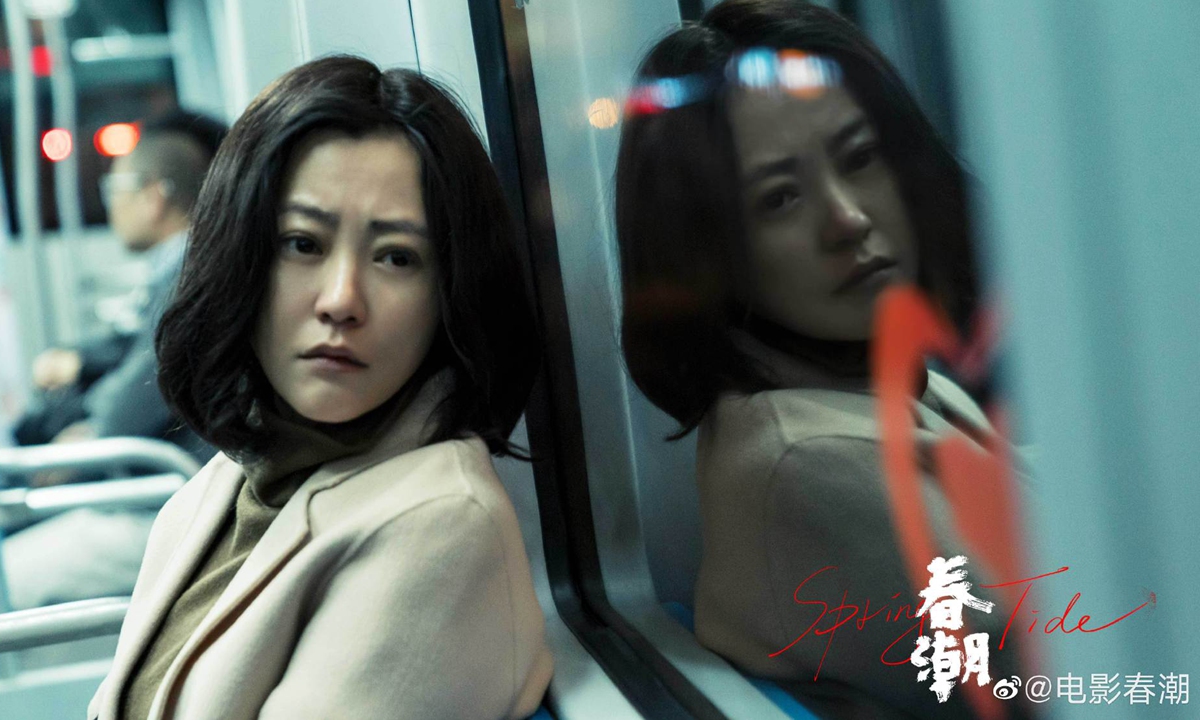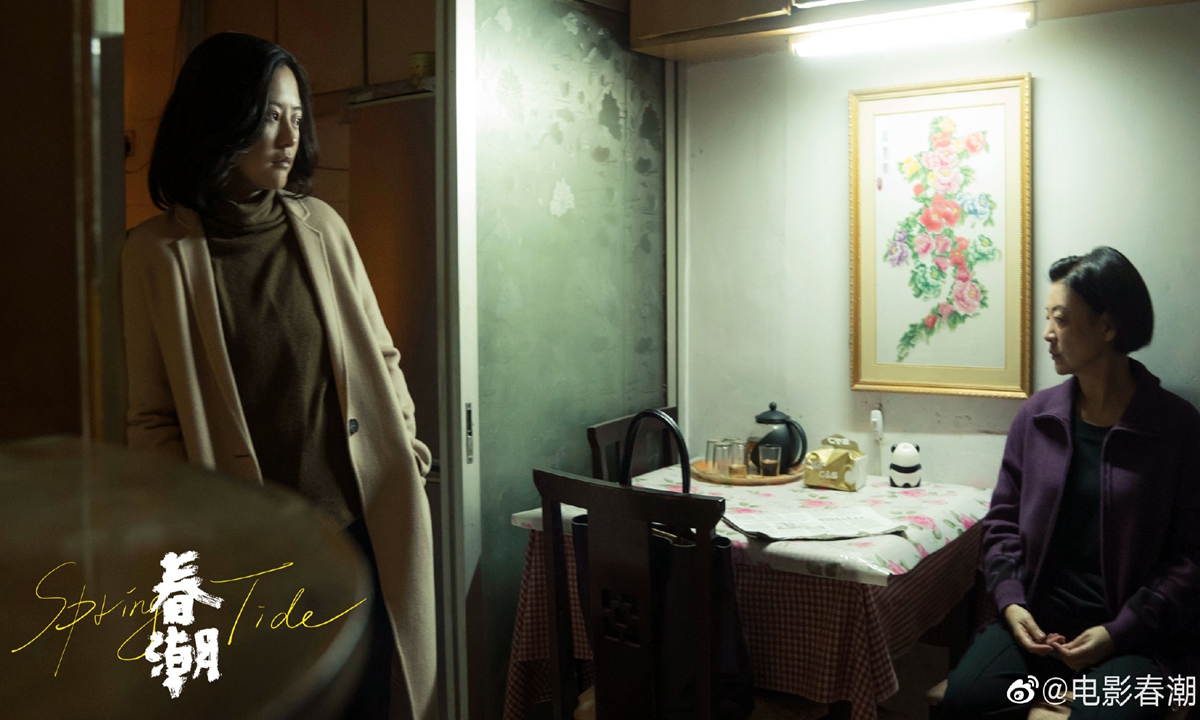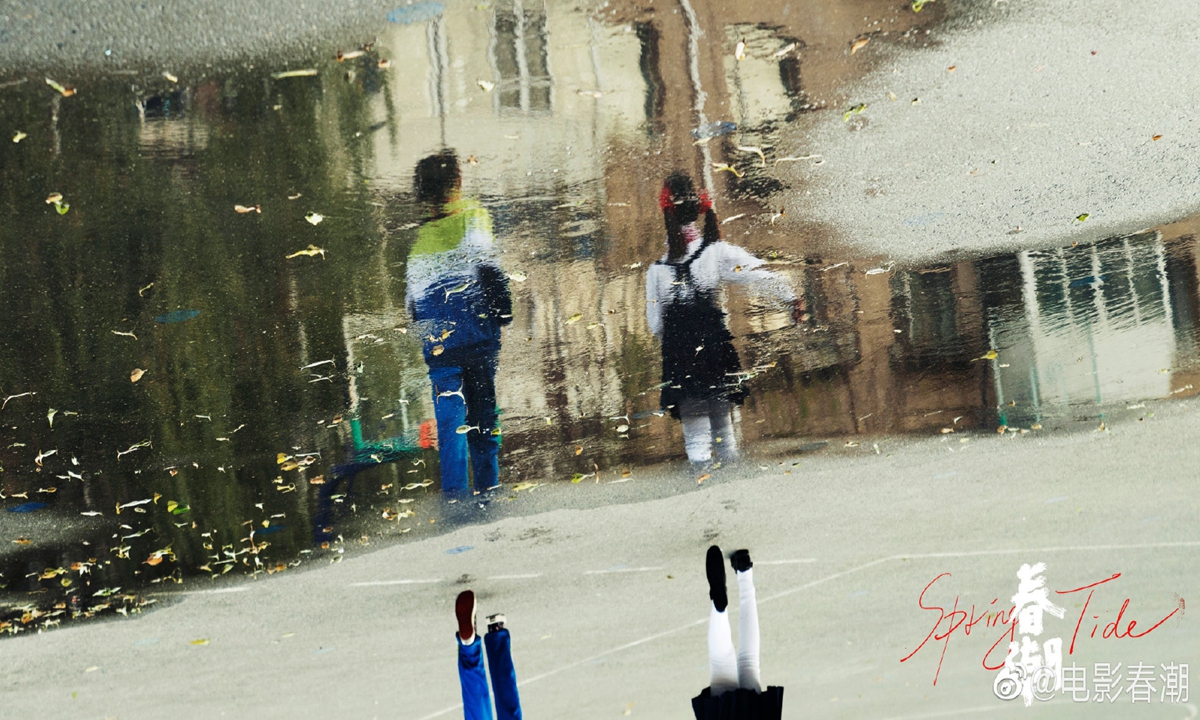Chinese film ‘Spring Tide’ explores difficult mother-daughter relationship in China
By Leng Shumei Source:Global Times Published: 2020/6/2 17:48:40 Last Updated: 2020/6/2 18:48:40

Photo: Spring Tide Sina Weibo account
Many hot topics on Chinese social media platforms in recent months have been related to women's issues: sexual assault of underage girls; whether women in China should be allowed to freeze their eggs by law; does a woman lose her independence if the children she gives birth to use her husband's surname.
The discussion expanded to exploring mother-daughter relationship after Chinese film Spring Tide was released online on May 17.
Stories for women
The film centers around a single mother in her 40s named Guo Jianbo, who struggles to deal with the emotional demands of her mother and daughter.
Coming from three different generations, each woman has her own pain and difficulties to cope with as they seek ways to escape from reality. They may come across as friendly, righteous or simple to strangers, but back with their family, they become picky, silent or sophisticated and often come into conflict with each other from time to time.
The three women's stories are an epitome of Chinese society, Yang Lina, the film director, told Chinese news site thepaper.cn, noting that the film is the first time that a Chinese film has told a thorough and complete story of women from three different generations.

Photo: Spring Tide Sina Weibo account
Many who have watched the film remarked that they could see themselves and their parents' generation in the characters.
Jun Yixiao, a 30-something journalist working in Beijing, told the Global Times that she totally understood Guo's silent approach when facing her mother. Guo is also a journalist.
"They [the old generation] do not listen. They are as nice as possible to friends, colleague and strangers and endure everything while outside, but vent all their disappointment and grievance on their family and scold their family for not appreciating her enough," Jun said.
She said she also experienced a period in the childhood when she had to be the coordinator when the adults quarreled like Guo's daughter in the film does.
In the film, Guo's daughter Wanting has a good friend named Yingzi, whose family is poor but full of love.
"I can understand Wanting's longing for such a simple and happy family relationship when she sees Yingzi dancing and singing with her parents," Jun said.

Photo: Spring Tide Sina Weibo account
Guo's father is notably absent in the film, which is not a surprise for a work from Yang.
"There is a tendency toward materialism in Asian culture, which is sad. As a female director, I feel responsible for creating for women. So in my movies, men are usually absent. This may make some males unhappy, but it does not matter as I am too busy digging for female stories to care about men's feelings," Yang told thepaper.cn.
Interestingly enough, the absent father is actually the root of Guo and her mother's conflict, according to Shi Wenxue, a Beijing-based film critic.
Guo's father died two decades ago. In Guo's memories, he was a perfect and caring father. However, Guo's mother accused her father of sexual assault. The film did not clarify whether the accusation was true, but the report did destroy Guo's father's career and life at a time when personal ethics were vital to people's reputation and career.
As to the whereabouts of the father of Guo's daughter, this is not made clear either. Guo's mother has taken care of her granddaughter since she was born, so the little girl has gradually become estranged from Guo.
The mothers and daughters in the movies are all trapped in cages they have created for themselves, while the conflict between them are rooted in difficulties tied to self identity, Shi told the Global Times.
Heated discussions
The movie has triggered heated discussions about mother-daughter relationships on Chinese social media platforms.
Some movie viewers said they were touched by the movie and its realistic depiction of mother-daughter relationships, while some others complained they could not understand the film.
"Those who could not understand the movie probably come from very happy families. From this perspective, it is good that they do not understand," one netizen commented on China's Twitter-like Sina Weibo.
As family relationships have become a global topic, it is the proper time for Chinese filmmakers to start paying attention to this topic, Yang noted.

Photo: Spring Tide Sina Weibo account
At the end of the film, Guo's mother falls into coma after a huge conflict with Guo. In the hospital, Guo has a roughly seven-minute-long monologue in which she confesses her resentment toward her mother and her helplessness in trying to love her daughter.
To some extent, the monologue reinforces that a lack of effective communication was the biggest issue between Guo and her mother, according to Shi.
In the film, Yingzi is from an ethnic minority and does not speak fluent Putonghua (Standard Chinese). Guo's daughter volunteers to play and help Yingzi improve her Chinese after another student refuses to be desk mates with her.
The last scenes of the film see the two running happily hand in hand toward a beautiful lake. Wanting laughs happily as she plays by the lake under the early spring sun.
Jun said she sees the scenes as an indication that Wanting has finally stepped out of struggling with her family relationships to embrace the world more openly rather than refusing to communicate like her mother and grandmother.
"It is also echoing the name of the movie - Spring Tide. The tide in the spring brings about the hope of rebirth," Jun said.
Posted in: FILM,ARTS FOCUS